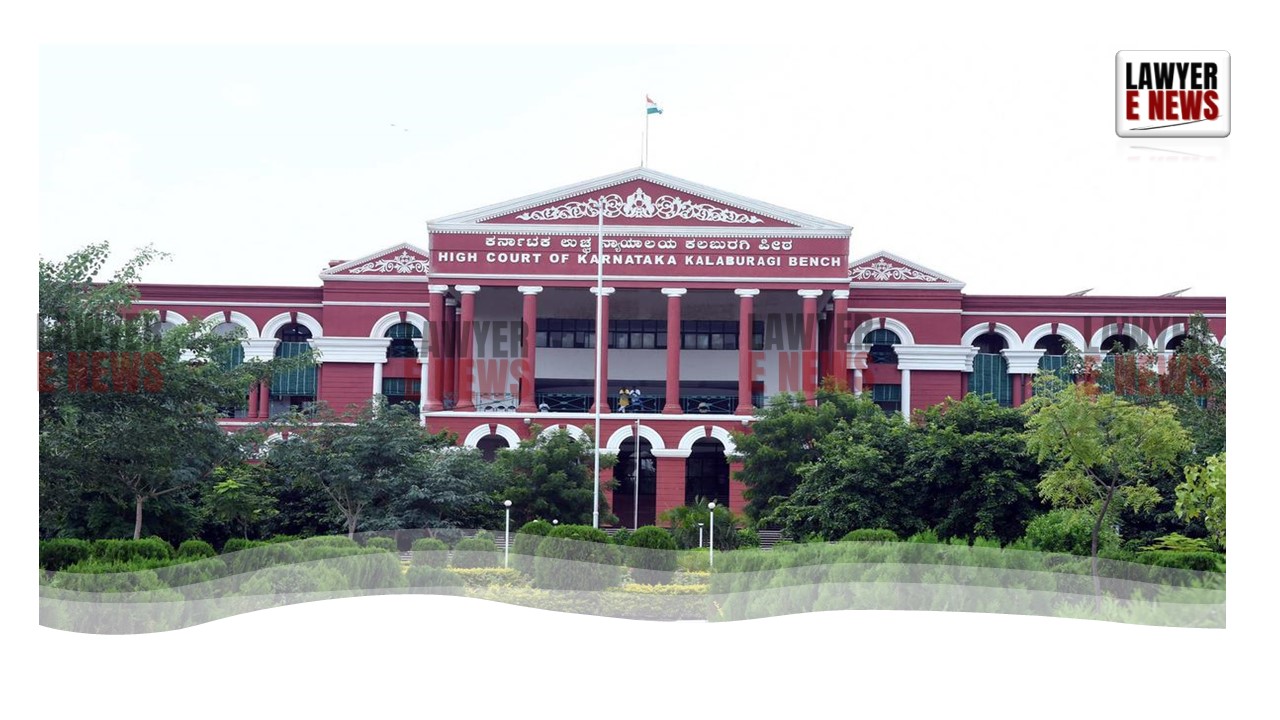-
by Admin
15 February 2026 2:36 AM



Subheadline: Karnataka High Court highlights the necessity of Magistrate-certified inventory in narcotics cases, overturns lower court’s conviction.
The High Court of Karnataka, Kalaburagi Bench, has acquitted two men previously convicted of illegally transporting ganja. The bench, led by Justice S. Vishwajith Shetty, overturned the trial court’s decision due to procedural lapses in handling the seized contraband, specifically non-compliance with Section 52A of the Narcotic Drugs and Psychotropic Substances (NDPS) Act.
On February 19, 2019, near Gate-I of Humnabad Bus Stand, within the limits of Humnabad Police Station, Karnataka, the appellants, Sharukh and Shubham, were apprehended with 30 kilograms of ganja. The contraband was seized and subjected to a panchanama. Subsequently, the police registered an FIR in Crime No. 24/2019 and filed a charge sheet against the accused for offenses under Sections 20(b)(ii), 20(B), and 20(C) of the NDPS Act. The trial court convicted them on August 29, 2022, sentencing them to 10 years of rigorous imprisonment and a fine of ₹20,000 each.
The High Court’s acquittal primarily hinged on the failure of the prosecution to comply with Section 52A of the NDPS Act. The section mandates the preparation of an inventory of seized contraband, certification by a Magistrate, and the drawing of samples in the Magistrate’s presence. In this case, the sample of the contraband was collected by the investigating officer in the presence of a gazetted officer, not a Magistrate. The court emphasized that this deviation renders the evidence inadmissible.
Justice Shetty observed, “The mandatory requirement of Section 52A is not at all complied with, and therefore, the photograph, samples drawn in the presence of a gazetted officer, and the FSL report cannot be considered primary evidence. In the absence of primary evidence, the trial gets vitiated.”
The court noted significant delays in sending the contraband for forensic examination, which could have led to tampering. The forensic science laboratory officer who issued the report was not examined, and the panch witnesses did not support the prosecution’s case.
Citing precedents, the court reiterated the necessity of adhering to Section 52A to ensure fair play in investigations. The provisions are designed to prevent foul play and ensure that evidence is collected and processed transparently. Justice Shetty highlighted the Supreme Court’s view in Mangilal vs. State of Madhya Pradesh, which underscores that compliance with Section 52A is mandatory and its absence vitiates the trial.
“The objective behind Section 52A is to have an element of supervision by the Magistrate over the disposal of seized contraband. Such inventories, photographs, and lists of samples drawn with certification by Magistrates would constitute primary evidence,” Justice Shetty remarked.
The High Court’s decision underscores the critical importance of following procedural safeguards outlined in the NDPS Act to uphold the integrity of the judicial process. This judgment serves as a reminder of the judiciary’s commitment to ensuring that the rights of the accused are protected through strict adherence to legal procedures. The acquittal of the accused in this case sets a precedent for future cases involving narcotic offenses, emphasizing that any deviation from the prescribed legal process can lead to the overturning of convictions.
Date of Decision: July 5, 2024
